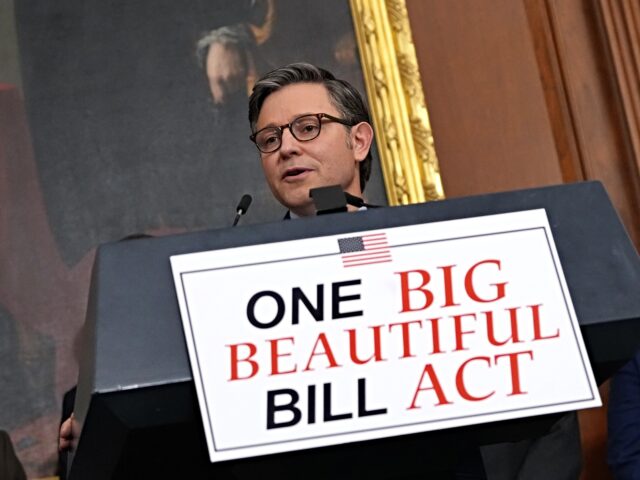Opposition Builds Against Provision in Big Beautiful Bill That Could Be a Boon to Woke Corporations

President Donald Trump’s big beautiful bill might actually benefit woke corporations seeking to insulate themselves from legal accountability if a provision inserted by Sen. Thom Tillis (R-NC) remains, conservatives and consumer advocates warn.
The provision would kneecap third-party litigation financing (TPLF), whereby a contract where a third party agrees to fund a lawsuit in exchange for interest on damages recovered. Litigation funded this way has become an increasingly critical resource for conservatives and small law firms taking on deep-pocketed woke corporations.
Though the intent of the provision might be to limit unnecessary and frivolous litigation, by effectively taking away TPLF, many Americans with legitimate claims likely will be unable to afford the cost of legal representation and a day in court.
A growing number of influential conservative advocates are arguing its a big mistake.
The Tea Party Patriots joined by a coalition of more than 25 conservative groups Friday in issuing a letter today to the Senate Finance Committee voicing their opposition to a provision in the current draft of the Senate reconciliation measure that would – they argue – help insulate woke corporations from legal accountability. The Alliance for Consumers issued their own letter to Congressional leadership Thursday warning how the little-noticed section within the bill threatens to derail the conservative legal fight against the Left and woke corporate America by – among other things – forcing disclosure of those funding such lawsuits.
Also Thursday, the Gold Star family of Lieutenant Colonel David E. Cabrera issued a letter to Congressional leadership making the case that without TPLF, it would be more challenging for Gold Star families and the victims of terrorism to bring claims against terrorists and those who have sponsored terrorism.
TPLF has a history of legal success. As Breitbart News reported:
One of the most well-known examples of third-party litigation funding (TPLF) came when Forbes broke the news in 2016 that billionaire PayPal co-founder Peter Thiel had been secretly funding a lawsuit that professional wrestler Hulk Hogan filed against Gawker Media for publishing a sex tape without his permission — a move Thiel made in retaliation after the website outed him as gay in 2007.
The Thiel-bankrolled lawsuit ended in victory for Hogan when the jury awarded him $115 million in compensatory damages and $25 million in punitive damages, leading to Gawker Media’s bankruptcy and subsequent dissolution.